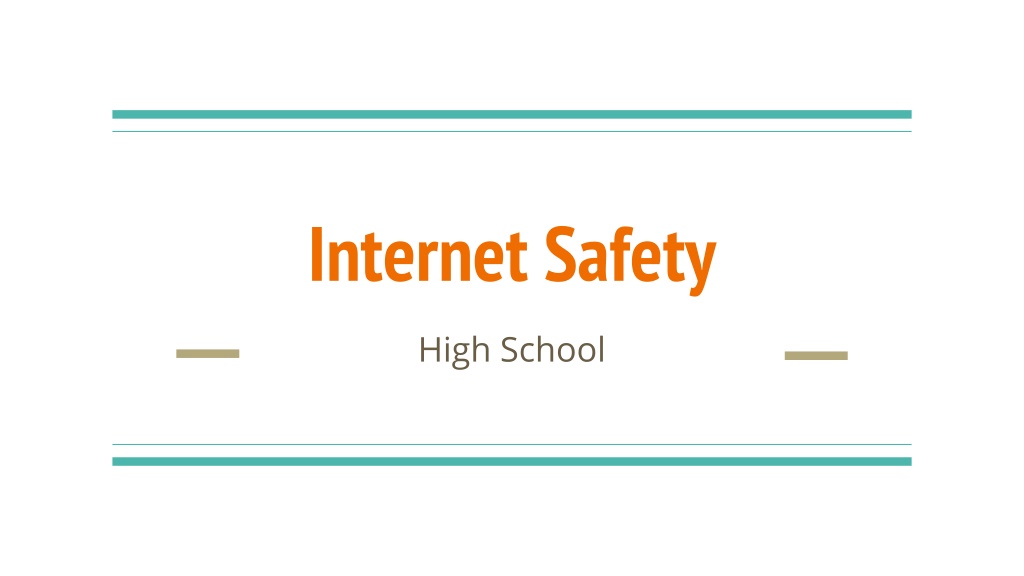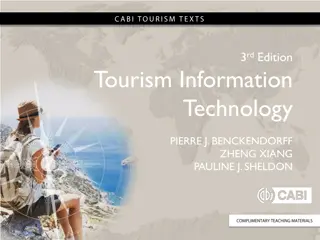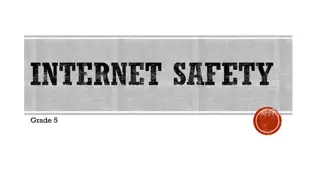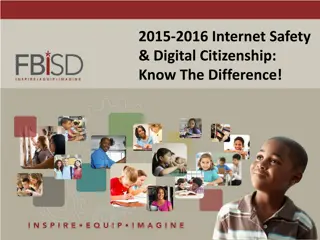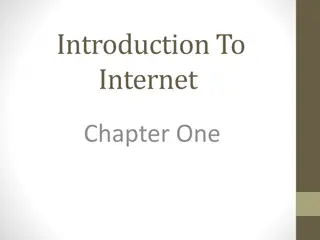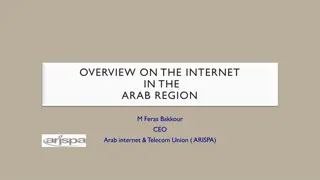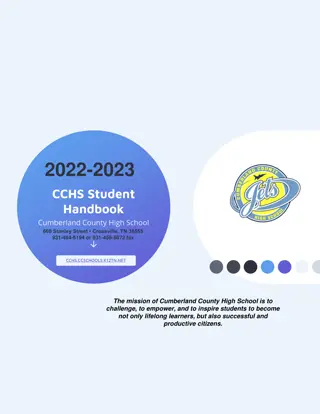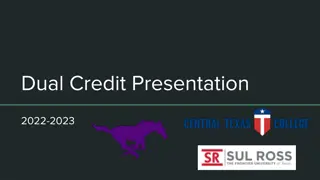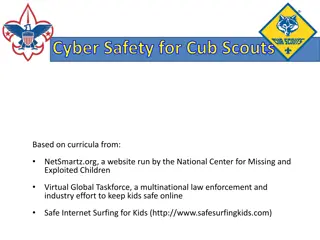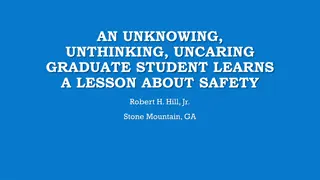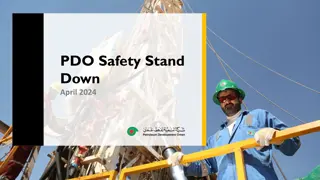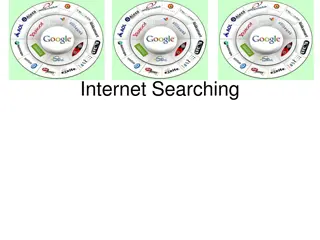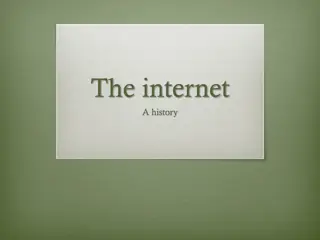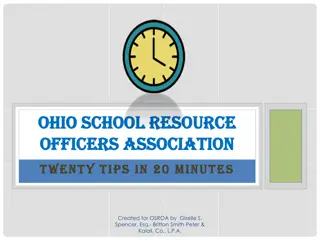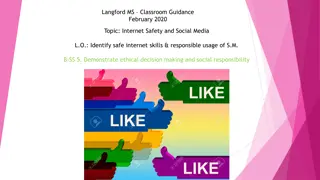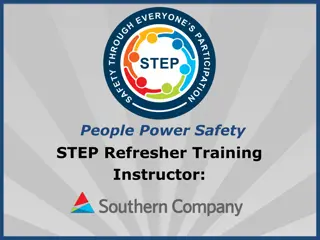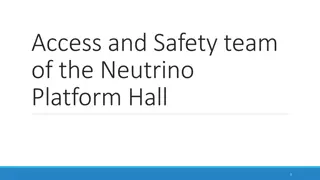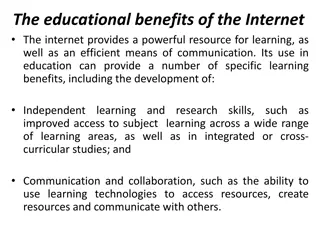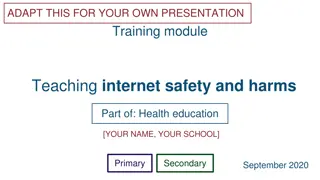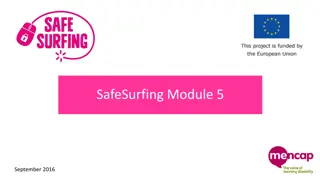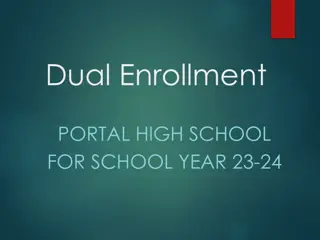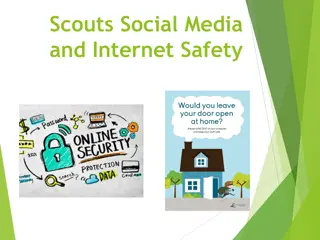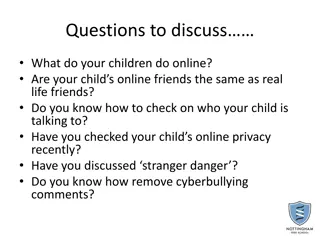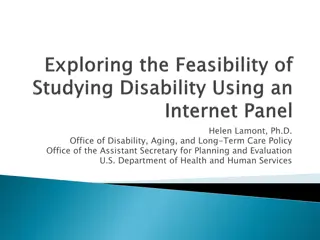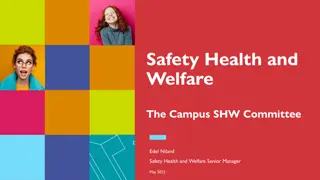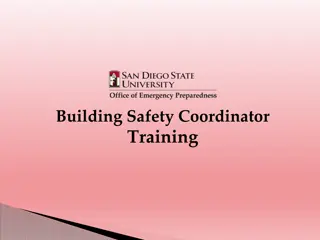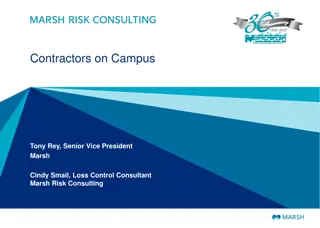Internet Safety Tips for High School Students
Online safety is crucial for high school students as they navigate social media, online profiles, and personal information sharing. This guide highlights the risks of posting personal information, using social media, and interacting with strangers online. Learn how to protect yourself and stay safe while using the internet.
Download Presentation

Please find below an Image/Link to download the presentation.
The content on the website is provided AS IS for your information and personal use only. It may not be sold, licensed, or shared on other websites without obtaining consent from the author. Download presentation by click this link. If you encounter any issues during the download, it is possible that the publisher has removed the file from their server.
E N D
Presentation Transcript
Internet Safety High School
Online Profiles How many of you have social media accounts? Facebook Twitter Instagram TikTok How many of you have a personal blog Wix Wordpress Tumblr How many of you have job resume profiles Linkedin Indeed
All of these sites and apps can be useful and fun to use, but you have to make use that you are using these tools in a safe manor. Everyday there are people out there that instead of using these internet sites for what they were meant to be used for, they use these tools to commit crimes, both violent and non-violent. The following are steps you can take to protect yourself while using the internet.
Personal Information *Never post personal information about yourself online* Personal information is anything that can identify you. Address Social Security Number Where you hang out Passwords
Social Media It is super important that you are careful not to post personal information on social media. Social media is one of the main ways now that predators and traffickers lure potential victims.
In the News In 2018, a man from New York found the work address of a 16 year old girl from her online profile. He lured her to the parking lot and assaulted her. In July of 2021, a man from Connecticut was sentenced to 20 years in prison for assaulting you women. He met all of them on facebook. In 2020, Facebook identified over 29,000 sex offenders with profiles on their website.
Sexual predators use social media to find potential victims You may not know it, but just by responding to these people on social media, they can track you and find your location Predators will create false accounts where they lie about who they are
Do not post personal information about yourself, or your friends online. People are out there that are seeking to steal your information, like your identity, and this could make you a target Set your account to private
What to do? The truth is that you will never really know who you are conversing with online. If anyone ever asks you for personal information, do not respond and block them If this person continues to harass you, let an adult know and if necessary let the proper authorities know what is going on
Photographs Be Cautious about posting photos of yourself and others online Anybody can use the photos you post in bad ways or alter the photo without your permission Once you post a photo online it is there forever! Even if you try to delete it. The photos you choose to post go a long way in building your online reputation Employers look at the photos you post
Do not post photos that can easily reveal personal information Before posting ask what your parents, coach, or college admissions counselor, or future employer would think Never send photos to somebody you do not know and never ask for photos from an online person If somebody asks for photos of you, do not respond and immediately tell and adult
Online Friends Only add someone that you personally know as a friend online Do not just add random people, you never know who these people might really be Do an online search of yourself and see what comes up What can you clean up from your online profile
Username/screen name Choose a username or screen name on whatever online apps you are using that does not give away any personal information Online predators can target you by just your screen name
Chatrooms Do not IM or chat with people that you do not know If somebody asks you for personal information, do not answer them and block them Do not lie about yourself online Only post something in a chatroom that you would say in person
Meetings Never agree to meet someone from online in person They might not be who they say they are It is easy to lie online Predators try and trick people every day to meet them in person If somebody asks to meet you in person, do not respond and tell an adult immediately
Warning Signs that this might be a bad person Offers you gifts and toys Wants to meet you in person Wants to talk on the phone with you Wants them to send pictures to you or asks for a picture of you Asks for personal information Asks for your password Makes you feel uncomfortable (trust your gut)
Rules we learned today for online safety 1. Do not give out personal information 2. Choose a screen/username that does not give away personal information 3. Do not say anything in a chat room or post anything you would not say in pubic 4. Never agree to meet someone from online 5. Do not accept photos or send photos of yourself or your friends 6. Think before you post pictures online 7. Turn your online accounts to private 8. Do not give out passwords 9. Do not respond to people that send threats or negative comments online 10.Immediately inform an adult or the appropriate authorities if you receive inappropriate messages
Teen Voices: Oversharing and Your Digital Footprint Teachers, for the lesson plan associated with this topic please visit: https://www.commonsense.org/education/digital-citizenship/lesson/social-media-and-digital-footprints-our-responsibilities Lots of middle schoolers post and share information about themselves and others on social media. But in a world where oversharing might seem normal, it s important to think about our digital footprints -- the things we leave behind online. In this video, you'll hear what teens have to say about sharing on social media, and you can think critically about the decisions you're making any time you post something online.
